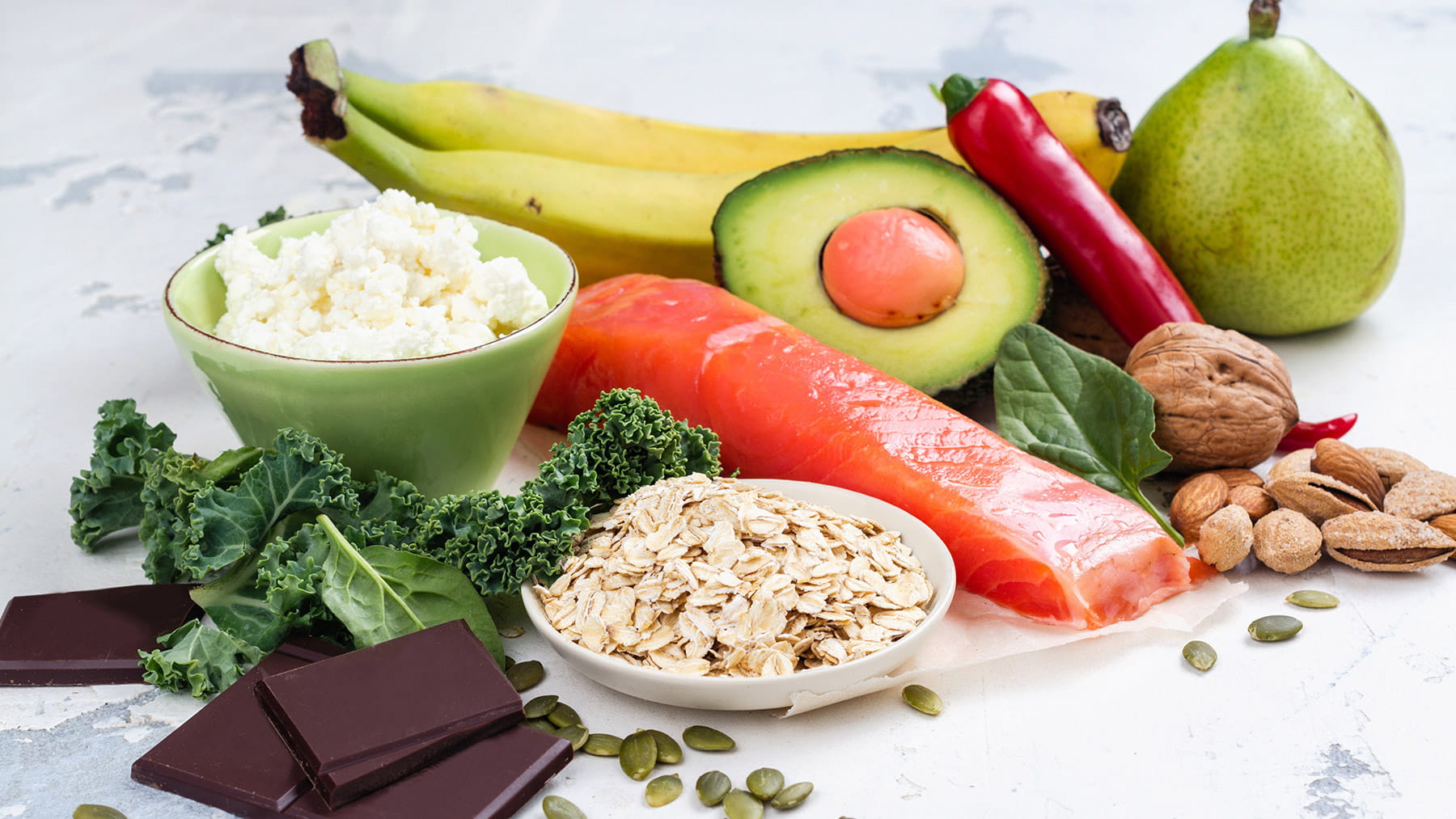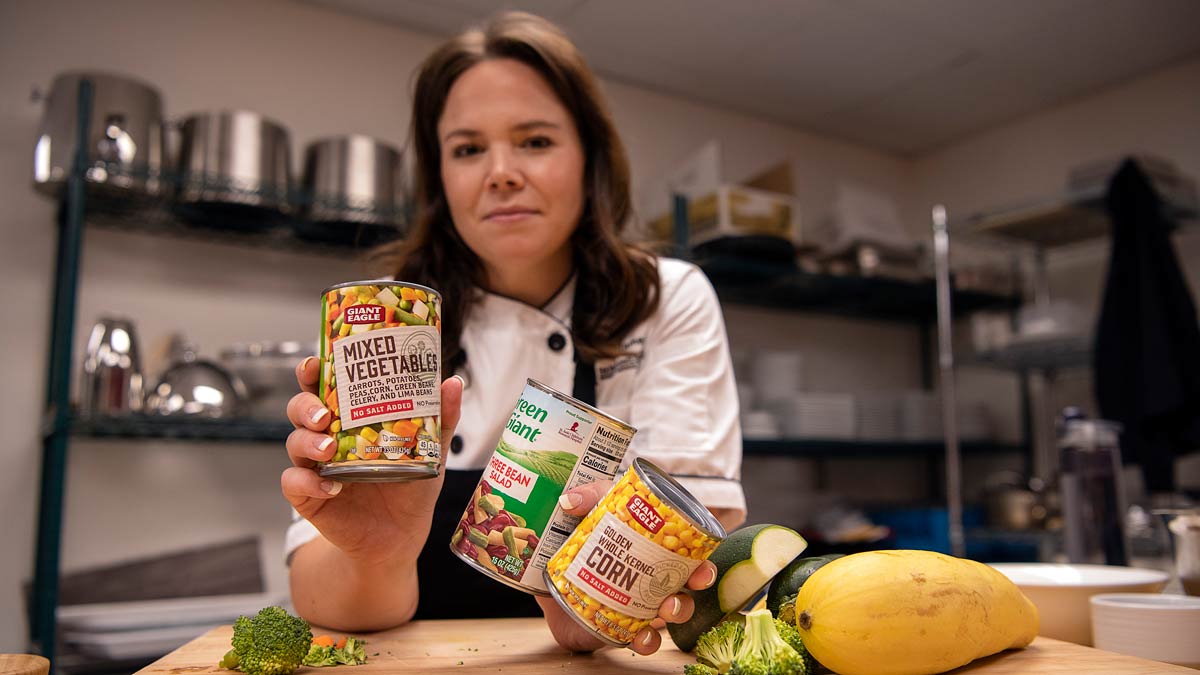
We’ve known for decades how our food and drink choices affect our heart, liver and other parts of our body. Now we’re seeing that the same holds true for the brain.
Mounting research shows that a healthy diet improves brain performance and preserves brain function. It makes sense – we know diet choices affect blood sugar, blood pressure and cholesterol. When any of these levels are off, it can be bad for the brain and increase the risk for stroke, dementia and decreased cognition.
Many people ask if there’s a specific diet or special foods they should eat for more brain power. It’s hard to name exactly which diet is best for the brain, but we now have some clues with research being done on the
Mediterranean,
DASH (Dietary Approaches to Stop Hypertension) and
MIND (Mediterranean-DASH Intervention for Neurodegenerative Delay) diets.
All of these diets have common factors: healthy fats such as nuts and fatty fish, limited saturated fat such as butter and coconut oils, plenty of fruits and vegetables, high-fiber whole grains and legumes, and very low amounts of processed and sugary foods such as fast food, chips, pastries and sweet drinks.
Let’s look at how various nutrients affect the brain.
Fats
Okay, no jokes about ‘fat heads.’ Did you know up to 70 percent of our brain is made of fat? Fat is very important for proper brain function, but it needs to be the right kind of fat. We need to get enough omega 3-fatty acids because these are the essential building blocks of our brain and they’re important for learning and memory. This is one reason that women’s prenatal vitamins contain DHA (docosahexaenoic acid), a type of omega-3 that’s also found in large amounts in fatty fish, such as salmon and sardines. Another type of omega-3 is available from plants such as ground flaxseeds, chia and walnuts.
The fat you want to avoid in large amounts is saturated fat such as butter, fatty meat, whole-fat dairy products and coconut oil. We need some, but most Americans eat too much.
The worst fats are partially hydrogenated fats like trans fats, which are still found in some foods. Also try to avoid mono- and di-glycerides. These fats have replaced trans fats in commercial cake mixes, frostings and other foods. It’s also good to avoid any food that’s deep fried, because these fats oxidize over time and may damage our cells.
Proteins
Proteins are important building blocks for the neurotransmitters that send messages throughout the brain. Most of the research so far points to fish, poultry, eggs and plant-based proteins such as legumes and nuts as the healthiest sources.
Eggs have gotten a bad rap for their cholesterol content, but the newest research shows eggs are fine for most people. In fact, eggs are a rich source of choline, which is important for brain function and especially important during pregnancy. You can also find choline in peanuts, beans, cauliflower and spinach.
Carbohydrates
Carbohydrates are starches and sugars that supply most of the fuel to our body, including our brain. It’s the type and quality of carbohydrates eaten that make a big difference. Focus on complex carbs, meaning ones that are high in fiber and in their natural form – think 100 percent whole grains, beans, fruits and vegetables. They’re packed with vitamins, minerals and antioxidants. These nutrients not only fuel the brain, they also protect brain cells against damage from free radicals released from pollution, stress and just being alive. Complex carbs take longer to digest, so they provide a steadier source of brain fuel compared to simple carbs such as candy, cookies and sweetened drinks.
One other note about carbs – the healthier ones have lots of fiber. Fiber feeds the good gut bacteria, which also appears to play a role in brain function. There’s a lot of new research about the gut-brain connection and how our microbiome affects our ‘second brain’ in the gastrointestinal tract.
Check your dietary pattern
Getting brain health benefits from a healthy diet is a lot like training for a marathon. One or two days of healthy eating won’t make up for several weeks of bad choices. The benefits come over time, and it’s never too late to start.
The thing to remember is it isn’t just about eating one or two so-called super foods to improve brain function. It’s the whole package. The most important thing to look at is your ‘dietary pattern’ – the majority of foods that you eat most of the time. Do you eat fast food four or five times a week? Do you eat fruits and vegetables at most meals? Do you cook at home but rely on processed mixes for meals? These are some of the questions to ask yourself when assessing how you currently eat and what you can change for optimal brain health.
Liz Weinandy is a registered dietitian in Nutrition Services at The Ohio State University Wexner Medical Center.
 We’ve known for decades how our food and drink choices affect our heart, liver and other parts of our body. Now we’re seeing that the same holds true for the brain.
We’ve known for decades how our food and drink choices affect our heart, liver and other parts of our body. Now we’re seeing that the same holds true for the brain.



